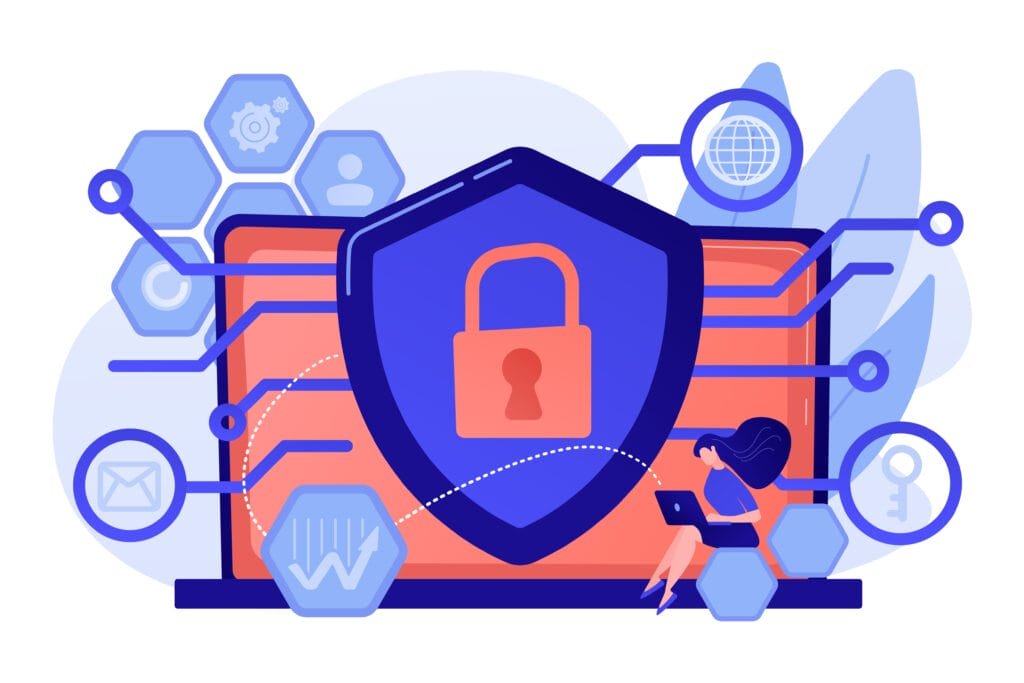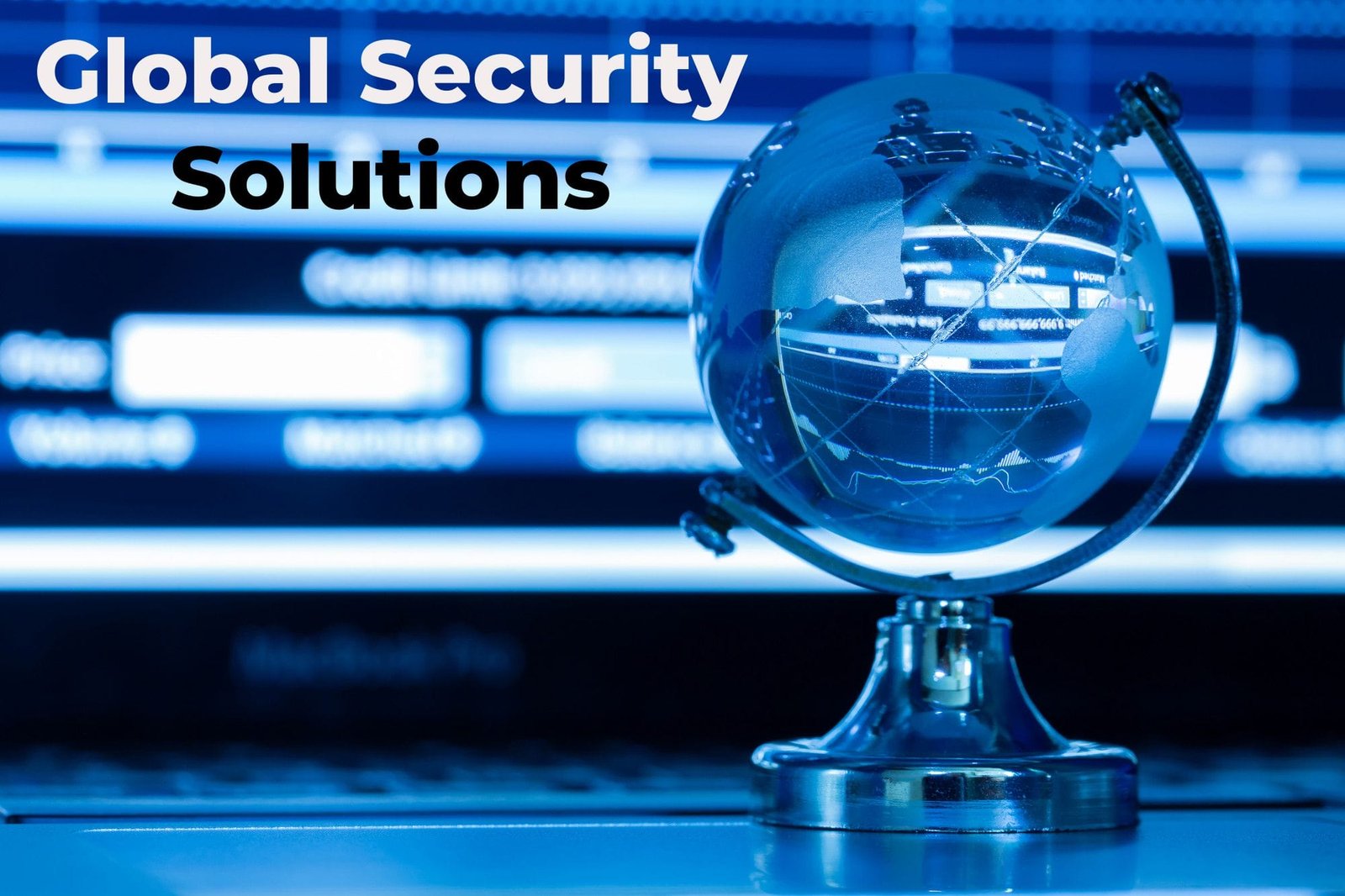Global Security Solutions: Safeguarding Our World
Global security solutions are powerful and in high demand as our world becomes more interconnected. A variety of challenges have been brought about by the complexity of modern society, leading to the use of adaptable and dynamic security measures. Global security is a vast and ever-evolving field that includes everything from environmental hazards and complex international conflicts to cyber threats that take advantage of weaknesses in digital systems.
Because of the interconnected nature of our world, security concerns affect people and nations everywhere, regardless of borders. Cyberattacks are a danger because they take advantage of technological innovations for malevolent ends. On the other hand, environmental hazards, like depletion of resources and climate change, have wide-ranging effects that affect not just local communities but also the stability of the entire planet. Geopolitical tensions and conflicts also add layers of complexity, requiring comprehensive approaches that take into account a variety of viewpoints and interests. Because these problems are dynamic, we need flexible approaches that can react quickly to new dangers and take preventative measures against others.
To put it simply, the current state of global security necessitates a comprehensive and adaptable strategy that can handle the complexity of the problems we face. To meet these challenges and protect our interconnected world, creative and cooperative efforts spanning national boundaries and disciplines are needed.
The Complexity of Global Security Threats
Cybersecurity Threats
Cyber threats are a serious issue in our digital age. Cyber warfare, advanced hacking, and data breaches present serious risks to people, companies, and entire countries. Our systems’ interconnectedness reveals weaknesses, which leaves us vulnerable to a variety of cyber threats. The range of cyber threats is wide, ranging from coordinated campaigns meant to compromise vital infrastructures to targeted attacks meant to steal confidential data. Because these threats are becoming more sophisticated, we need to be constantly alert, come up with creative defenses, and work together across industries to reduce risks and strengthen our digital defenses. To address these issues, we need not only to make significant technological advancements but also to implement strong policies and proactive measures to protect against the ever-present and constantly changing cyber threats in our globally interconnected society.
Terrorism and Political Instability
Extremist ideologies, political unrest, and regional conflicts all contribute to global instability, which presents serious risks to international peace and security. These complex problems have consequences that affect stability globally. Ideological disagreements and regional tensions frequently cross national boundaries, creating an unstable environment. Due to the complexity of these issues, international cooperation is required. To reduce these unstable factors and maintain global security, inclusive and peaceful approaches must be promoted, conflicts must be resolved through diplomatic efforts, and diplomatic engagement is necessary.
Environmental Security Risks

The connection between environmental issues and international security is emphasized by events brought on by climate change, natural disasters, and resource scarcity. These problems affect all countries, regardless of their location. Disasters caused by climate change upset societies and economies and cause general instability. Lack of resources exacerbates tensions and can lead to disputes over necessities. To address the underlying causes of environmental threats and implement proactive measures, sustainable policies, and international cooperation, these interconnected environmental issues must be acknowledged. In light of the increasing climate disaster mitigating these difficulties is essential to maintaining international stability and security.
Building Effective Global Security Solutions
Technology and Innovation
The use of modern technologies like biometrics and artificial intelligence greatly improves border security protocols. These developments provide a critical edge in border security by making advanced threat detection, identification, and monitoring systems possible. While biometrics offer highly accurate identification techniques, based on artificial intelligence analysis improves the capacity to anticipate and prevent security breaches. By simplifying processes and strengthening border control, the integration of these latest innovations makes international travel and trade safer and more effective. Accepting these developments signals a fundamental change in security tactics, enabling countries to proactively guard their borders against changing threats in a world that is getting more complex by the day.
International Cooperation and Diplomacy
To address transnational security threats, cooperation between states, international organizations, and diplomatic negotiations is essential.
Preparedness and Risk Management
Effective security solutions are based on active risk assessment, emergency preparedness, and crisis management techniques.
The Role of Technology in Fortifying Security Measures
Surveillance Systems and AI Applications
To improve overall security protocols, threat detection, and prevention are supported by AI-driven analytics and advanced monitoring equipment.
Data Protection and Encryption

Sensitive data is protected from unwanted access by strict data protection policies and secure encryption techniques.
Impact of Emerging Technologies
Technology is developing at a rapid pace, which presents opportunities and challenges for security professionals and calls for flexible approaches.
Navigating Challenges in Security Implementation
- Balancing Privacy and Security: Finding a careful balance between the right to privacy and the requirement for strict security measures is still a difficult task.
- Legal and Ethical Considerations: It takes careful navigation of complex regulatory landscapes to implement security solutions while adhering to legal frameworks and ethical standards.
- Financial Constraints: The extensive implementation of advanced security measures is frequently hampered by resource constraints, particularly in developing nations.
Examining Successful Global Security Initiatives
- United Nations Efforts: To promote cooperation among its member states and coordinate global security initiatives, the United Nations is essential.
- Collaborative Cybersecurity Measures: Globally, the battle against cyber threats has advanced significantly as a result of cooperative projects and public-private partnerships.
- Environmental Conservation Projects: Environmental and security concerns are interrelated, as evidenced by initiatives to protect the environment and address climate-related security risks.
Anticipating the Future of Global Security
- Advancements in Security Technology: Security measures will be revolutionized by ongoing technological advancements, which will provide creative answers to new threats.
- Evolving Threats and Adaptability: ensuring the effectiveness of global security solutions requires the capacity to anticipate and adjust to changing security threats.
- Importance of Proactive Strategies: To reduce future security challenges, it will be important to prioritize proactive approaches over-reactive measures.
Conclusion
Solutions for global security are essential for protecting our planet from a variety of threats. Using technological innovation, international collaboration, and strategic anticipation, we can effectively navigate the complicated nature of today’s security predicaments. Adaptive and proactive measures are still critical as the landscape changes.
FAQs
How do global security solutions impact privacy concerns?
Global security solutions often face criticism for encroaching on individual privacy. Striking a balance between security and privacy remains a challenge, prompting ongoing debates and regulatory efforts.
What role does technology play in modern security solutions?
Technology, particularly AI, machine learning, and encryption, significantly enhances the efficacy of security measures, aiding in threat detection and proactive responses.
Are there challenges in implementing collaborative security measures among nations?
Yes, challenges include geopolitical differences, differing priorities, and complexities in information sharing, hindering seamless collaboration.
What are some potential future trends in global security solutions?
Biometrics, IoT integration, and advancements in quantum encryption are among the anticipated future trends in global security solutions.
How do security solutions impact economic stability?
Effective security measures foster trust and stability, contributing to a conducive environment for economic growth and prosperity.








2 Comments